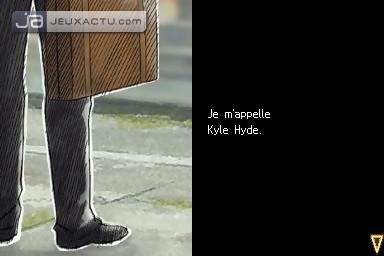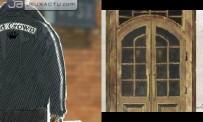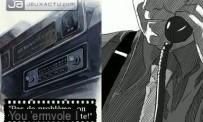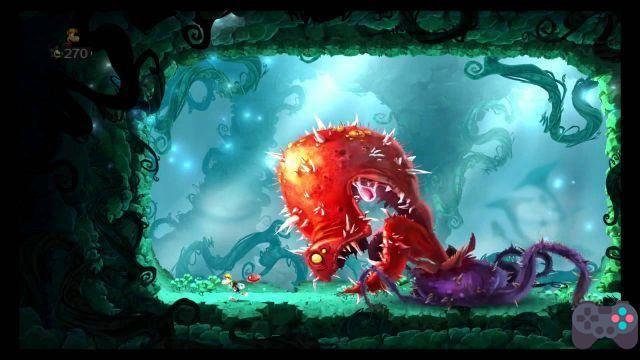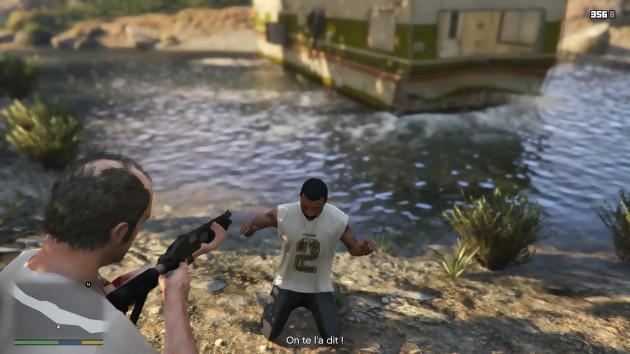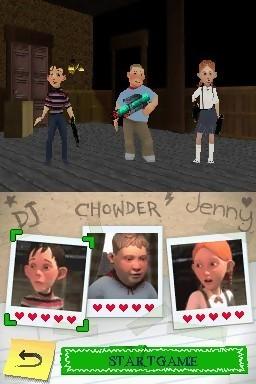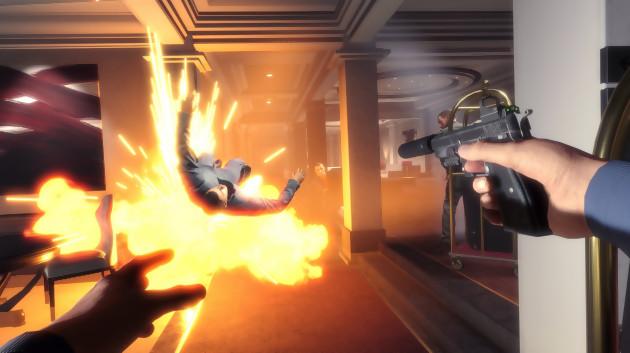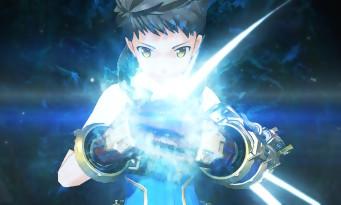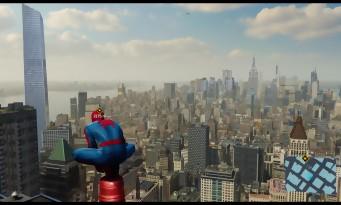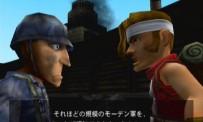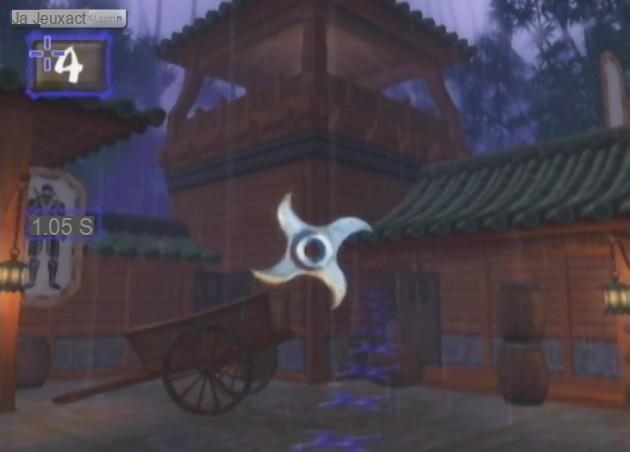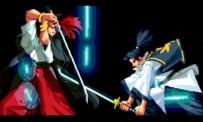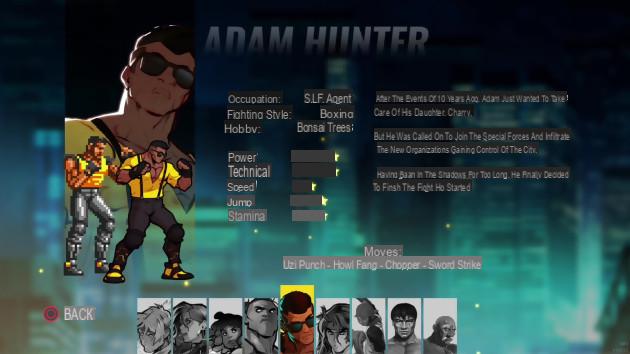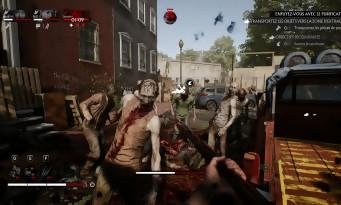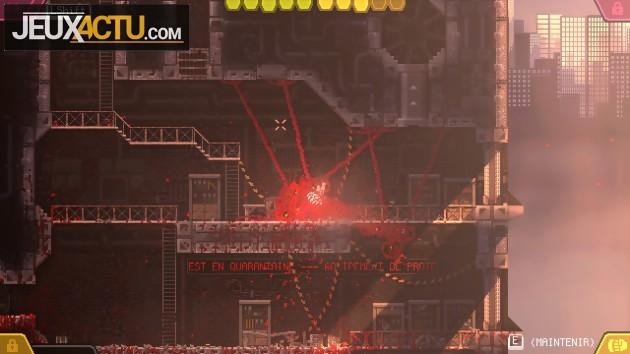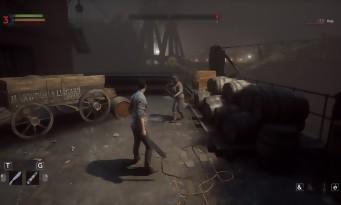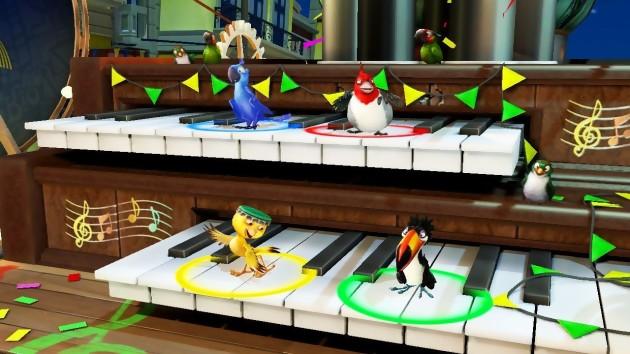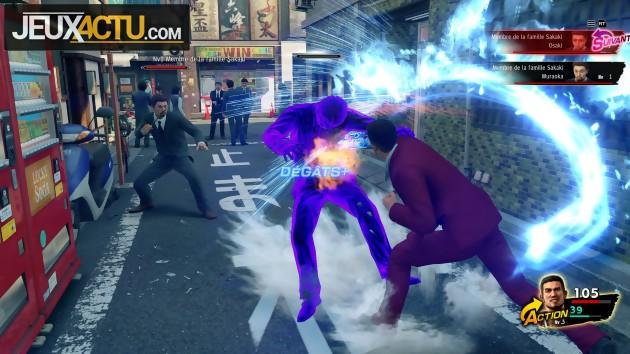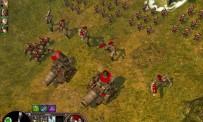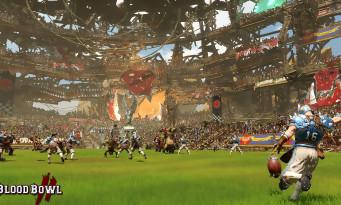 Hotel Dusk: Room 215 is equidistant between its spiritual predecessor (Another Code) and the reference of the text game on this machine (Phoenix Wright), which in no way implies an absence of personality. On the contrary, since its graphics are truly unique, and its mode of progression as rigorous as it is personal. Hotel Dusk therefore offers neither the adventure side of Another Code, nor the gifted writing of Phoenix Wright, but has a number of qualities and traces its own way of thinking with an enlightened talent. First, as if to make the player understand that he is not in an ordinary video game, Hotel Dusk offers (requires, in truth) to hold the Nintendo DS like a book, optimizing the height of the two screens of the laptop. So here is once again a DS game in which no button will be necessary, and where all action goes through shortcuts on the touch screen. Like a book, or rather like a comic strip, because this is clearly the effect sought by the graphic designers inspired by Hotel Dusk: Room 215. If the decorations are arbitrary, even quite ugly when they are modeled in 3D on the screen on the left, the protagonists live through a sleek, stylish black and white line, animated by a perpetual movement that gives it a highly expressive cachet! It is when one understands that the main issue lies in the dialogue, that the interest of the double screen takes off: one in front of the other, it makes it possible to observe fully and without cuts the reactions of the two interlocutors.
Hotel Dusk: Room 215 is equidistant between its spiritual predecessor (Another Code) and the reference of the text game on this machine (Phoenix Wright), which in no way implies an absence of personality. On the contrary, since its graphics are truly unique, and its mode of progression as rigorous as it is personal. Hotel Dusk therefore offers neither the adventure side of Another Code, nor the gifted writing of Phoenix Wright, but has a number of qualities and traces its own way of thinking with an enlightened talent. First, as if to make the player understand that he is not in an ordinary video game, Hotel Dusk offers (requires, in truth) to hold the Nintendo DS like a book, optimizing the height of the two screens of the laptop. So here is once again a DS game in which no button will be necessary, and where all action goes through shortcuts on the touch screen. Like a book, or rather like a comic strip, because this is clearly the effect sought by the graphic designers inspired by Hotel Dusk: Room 215. If the decorations are arbitrary, even quite ugly when they are modeled in 3D on the screen on the left, the protagonists live through a sleek, stylish black and white line, animated by a perpetual movement that gives it a highly expressive cachet! It is when one understands that the main issue lies in the dialogue, that the interest of the double screen takes off: one in front of the other, it makes it possible to observe fully and without cuts the reactions of the two interlocutors.
In a movement sequence, we note an amusing annoyance in following the screen on the left while handling the stylus on the one on the right, because even if the two spaces are not that far apart, this dichotomy nevertheless creates an embarrassment . It is therefore easier to locate on the schematic map on the right, but it's not as if we were missing superbly modeled sets. Apart from the dialogues and the displacements, the only activity of the ex-detective Kyle Hyde is to search all that seems necessary to him. These areas are designated by a signal, and each element can then be observed there, by tilting the viewing angle by a few degrees. All the clues are in front of your eyes, then it's up to the player not to miss the element that will help advance the plot, divided into ten chapters.
Welcome to the Hotel California...
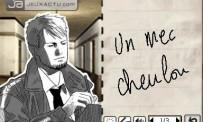 The context of Hotel Dusk: Room 215 is also one of the most interesting because it looks like a real camera, both spatial and temporal. The title takes place in the same building and over only a few hours. A camera cleverly conducive to psychological developments. As mentioned earlier, your avatar is named Kyle Hyde, an ex-detective looking for his former partner, Brian Bradley, who operates under the cover of a fake door-to-door agency. Kyle is a quickly endearing character. Firm but tolerant, jaded but attentive and patient, with a slightly forced smile, he appears as a tireless frenzied investigator, little concerned by the folklore of the world that surrounds him, without denying a certain part of Epicureanism. In fact, the only two moments in the game where this man smiles are after eating the restaurant's excellent home cooking and after drinking his signature bourbon at the bar! The relationship between Kyle and the player is really noticeable. The ex-detective sometimes uses humor to make fun of the own weaknesses of the game of which he is the hero (having to examine the slightest dirty rag, and suspecting each toilet bowl is indeed something laughable). In the tactile mechanisms sown throughout the game, CING demonstrates great rigor and great sobriety. No puzzle is outlandish, everything seems clear and often logical. And even if it is not part of the first DS games, it still manages to surprise from time to time on this side.
The context of Hotel Dusk: Room 215 is also one of the most interesting because it looks like a real camera, both spatial and temporal. The title takes place in the same building and over only a few hours. A camera cleverly conducive to psychological developments. As mentioned earlier, your avatar is named Kyle Hyde, an ex-detective looking for his former partner, Brian Bradley, who operates under the cover of a fake door-to-door agency. Kyle is a quickly endearing character. Firm but tolerant, jaded but attentive and patient, with a slightly forced smile, he appears as a tireless frenzied investigator, little concerned by the folklore of the world that surrounds him, without denying a certain part of Epicureanism. In fact, the only two moments in the game where this man smiles are after eating the restaurant's excellent home cooking and after drinking his signature bourbon at the bar! The relationship between Kyle and the player is really noticeable. The ex-detective sometimes uses humor to make fun of the own weaknesses of the game of which he is the hero (having to examine the slightest dirty rag, and suspecting each toilet bowl is indeed something laughable). In the tactile mechanisms sown throughout the game, CING demonstrates great rigor and great sobriety. No puzzle is outlandish, everything seems clear and often logical. And even if it is not part of the first DS games, it still manages to surprise from time to time on this side.
Hotel Dusk is really a modest game, with a scenario that is ultimately very sober, despite the cult of mystery largely maintained by a generous plot that only unravels with very small touches. A game on a human scale, in a context anything but Japanese, let's take this opportunity to admire the ability of the Japanese to set an excellent backdrop in any situation, here the USA at the end of the 70s. And there, no doubt , Hotel Dusk captivates. With its human characters, fundamentally believable, and its chameleon investigator who seems to adapt to each situation, to each character. All in a cozy atmosphere, sometimes accompanied by good musical timbres, in this vaporous end of the 70's decade that smells of alcohol and leather.
Such a lovely place, such a lovely face
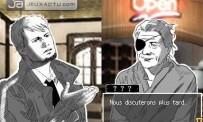 The high point of the game lies in the verbal confrontation with one of the individuals living in the hotel, where nothing is free since each of the customers, even the managers, are curiously connected to the same mystery, the one that interests Kyle. It is in his sequences where you have to squeeze the juice, pull the verses out of your nose (so many delicate parables) that you have to handle the verb without skidding. A bad choice, irrelevant or offensive answers, and your interlocutor could cut short any conversation. In which case, it's Game Over. A little on the model of Phoenix Wright, but in an even more subtle way, because unlike Capcom's game, there is no stake here concretely defined in advance (the trial) and therefore no judge to convince , but only a man (or a woman) with whom it is necessary to maintain the dialogue! In this game, Game Over simply means that Kyle has lost this unspoken contact and finds himself stuck in his investigation, so we see him moping about his incompetence and then packing his bags the next day, without room 215 having answered his question. wish, as legend has it. No sudden death or tragedy in all of this. And yet, immense paradox, I find that the Game Over of Hotel Dusk is one of the saddest there is! Precisely because it is a human and relational failure. A loss at Hotel Dusk is 100 times worse than falling off a cliff in a platform game or getting knocked out in a fighting game.
The high point of the game lies in the verbal confrontation with one of the individuals living in the hotel, where nothing is free since each of the customers, even the managers, are curiously connected to the same mystery, the one that interests Kyle. It is in his sequences where you have to squeeze the juice, pull the verses out of your nose (so many delicate parables) that you have to handle the verb without skidding. A bad choice, irrelevant or offensive answers, and your interlocutor could cut short any conversation. In which case, it's Game Over. A little on the model of Phoenix Wright, but in an even more subtle way, because unlike Capcom's game, there is no stake here concretely defined in advance (the trial) and therefore no judge to convince , but only a man (or a woman) with whom it is necessary to maintain the dialogue! In this game, Game Over simply means that Kyle has lost this unspoken contact and finds himself stuck in his investigation, so we see him moping about his incompetence and then packing his bags the next day, without room 215 having answered his question. wish, as legend has it. No sudden death or tragedy in all of this. And yet, immense paradox, I find that the Game Over of Hotel Dusk is one of the saddest there is! Precisely because it is a human and relational failure. A loss at Hotel Dusk is 100 times worse than falling off a cliff in a platform game or getting knocked out in a fighting game.
Plenty of rooms at the Hotel California
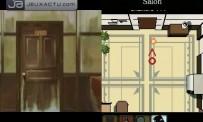 That being said, we must still admit that all this is not very subtle from a playful point of view. You just have to be careful not to offend your interlocutor, and pitfalls are rare in the MCQs offered. If there is a limit to Hotel Dusk, here it is. This is an ultra linear and logically scripted title as possible, sometimes in the wrong sense of the word, because the actions must all start in a very precise order or risk haunting the corridors of the hotel aimlessly. Moreover, in the event of Game Over, the game does not make you resume from the previous sequence, and since the dialogues obviously cannot be skipped, this implies having to save often, very often. Besides, Hotel Dusk sometimes listens to itself a little too much. As much as Another Code's end-of-chapter sequences, in which Ashley self-imposed a memo to keep her actions in mind and delve into the mystery of her past, seemed justified, here too...Kyle doesn't miss a chance to wrap it all up, whether at the end of the chapter or by sharing the progress of his investigation with his few confidants (secretary Rachel, boss Ed and his old friend Louie, a brave reconverted pickpocket) which in the end inflicts a lot of repetitions, even for an information-rich script that has a large number of tracks.
That being said, we must still admit that all this is not very subtle from a playful point of view. You just have to be careful not to offend your interlocutor, and pitfalls are rare in the MCQs offered. If there is a limit to Hotel Dusk, here it is. This is an ultra linear and logically scripted title as possible, sometimes in the wrong sense of the word, because the actions must all start in a very precise order or risk haunting the corridors of the hotel aimlessly. Moreover, in the event of Game Over, the game does not make you resume from the previous sequence, and since the dialogues obviously cannot be skipped, this implies having to save often, very often. Besides, Hotel Dusk sometimes listens to itself a little too much. As much as Another Code's end-of-chapter sequences, in which Ashley self-imposed a memo to keep her actions in mind and delve into the mystery of her past, seemed justified, here too...Kyle doesn't miss a chance to wrap it all up, whether at the end of the chapter or by sharing the progress of his investigation with his few confidants (secretary Rachel, boss Ed and his old friend Louie, a brave reconverted pickpocket) which in the end inflicts a lot of repetitions, even for an information-rich script that has a large number of tracks.
